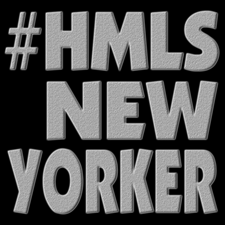His mother told him he had to buy a share of Nike before he could have another pair of sneakers…Great parenting! Tweet
Read the rest of this entry »Archive for January, 2014
Black History Fact Of The Day: Ida Gray Nelson
In 1890, Ida Gray Nelson became the first African American woman to graduate with a Doctorate of Dental Surgery in the United States. Tweet
Read the rest of this entry »Quote Of The Day
“He who cannot change the very fabric of his thought will never be able to change reality, and will never, therefore, make any progress.” -Anwar Sadat Tweet
Read the rest of this entry »Black History Fact Of The Day: Rufus Stokes
Rufus Stokes invented an air-purification device that reduces gas and ash emissions from furnaces and powerplant smokestack emissions. Tweet
Read the rest of this entry »Quote Of The Day
“Do not paralyze yourself with fear which doesn’t serve you but takes away your talent.” -Josephine Baker Tweet
Read the rest of this entry »Book Excerpt Of The Week: “All God’s Children: The Bosket Family and the American Tradition of Violence.” By: Fox Butterfield
“With the legal system in the hands of whites, the distinction between law an lawlessness became so fuzzy as to be meaningless to many African-Americans. B.O. Townsend noticed this as early as 1877. ‘So often were the slaves whipped and humiliated before each other, often for no cause, that punishment came to be looked on […]
Read the rest of this entry »TODAY IS BUY BLACK FRIDAY
PLEASE PASS THIS ON! (EACH ONE TEACH ONE OR TWO!) THIS IS PHASE ONE ON HOW WE CAN HELP TO STRENGTHEN & EMPOWER OUR COMMUNITY: The 2008 not guilty verdict in the Sean Bell case evoked outrage, emotion, and debate. It is not an anomaly that the police officers involved in the Sean Bell slaying […]
Read the rest of this entry »Quote Of The Day
“Every day out in the street now, I remind myself that Black people in America are oppressed. It’s necessary that I do that. People get used to anything. The less you think about your oppression, the more your tolerance for it grows. After a while people think oppression is the normal state of things. But […]
Read the rest of this entry »The Fly Or Die Commerce Report: What Americans Spend Their Money On
According to Money magazine, the Bureau of Labor Statistics states that Americans currently spend most of their money on housing and transportation. The Bureau of Labor Statistics breaks down the average percentage of annual spending as follows: 33% on housing 17% on transportation 13% on food 10% on retirement 10% on miscellaneous 7% on health […]
Read the rest of this entry »Black History Fact Of The Day: Elijah Abron Self-Binding Paper
Elijah Abron received a patent for his invention Substrate paper in 2006. His invention is self-binding paper. It securely binds paper without using binders, staples, or paper clips. Tweet
Read the rest of this entry »

